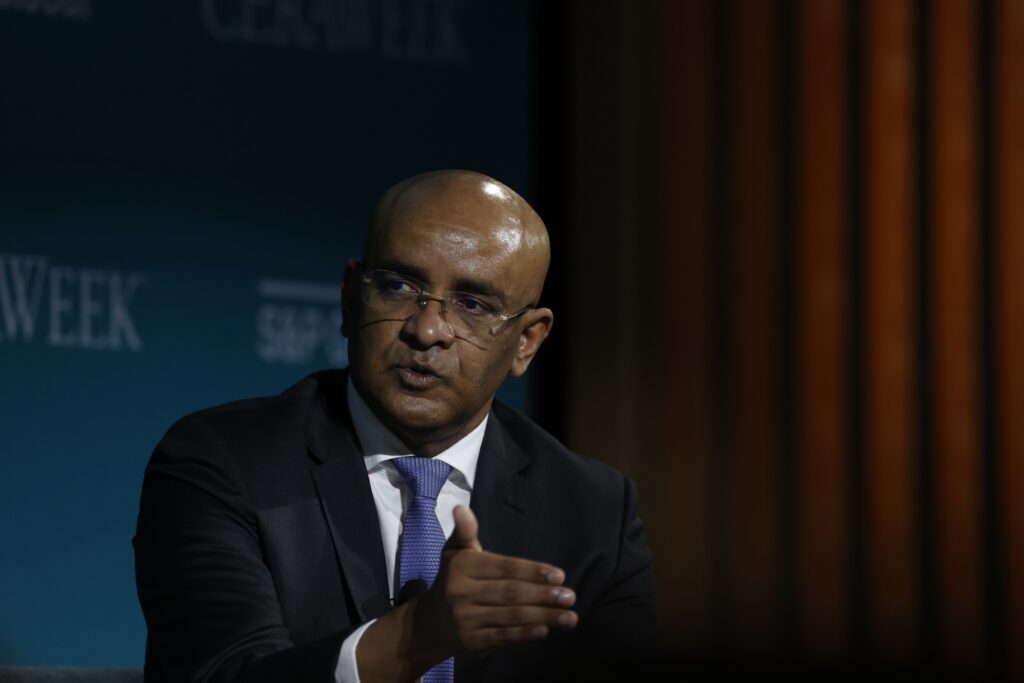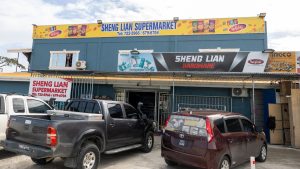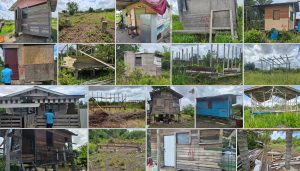Guyana heads to COP28 with ‘great credibility’ – Jagdeo

The highly anticipated 28th Conference of the Parties to the UN Framework Convention on Climate Change (COP28) kicks off in the UAE on November 30 and while Guyana supports the regional position of the Caribbean Community (CARICOM), it heads to the global gathering of world leaders with a focused call that propels long identified national ambitions.
President Dr. Irfaan Ali will lead Guyana’s delegation which also includes Vice President and recipient of the Champion of the Earth Award, Dr. Bharrat Jagdeo.
During a press briefing on Thursday at the Office of the President, Dr. Jagdeo boasted that Guyana, an emerging oil-producing but carbon-negative country, heads to COP28 with good and strong credentials and has already solicited the support of the international community for the issues it wishes to advance.
The position of CARICOM focuses on raising ambitions because of the threat that climate change poses to the region but one that calls for adaptation funding and funding for loss and damage.
Guyana supports this position fully but says it will push further for the large countries to deliver on what was pledged and promised already and a little more.
Guyana’s slightly different perspective is a result of its large and well-preserved forest cover.
And so the push, as Jagdeo puts it, is for the world to deliver on the “right incentives globally to preserve forecast and a just transition in the global arena.”
He said Guyana will continue to outline the revised Low Carbon Development Strategy (LCDS) first piloted and developed by him in 2009.
Guyana began to reap the fruits of that strategy with funds earned through the sale of carbon credits now supporting the development of the country, with particular emphasis on indigenous communities.
Jagdeo said Guyana will press this issue further for heightened financial incentives for forest carbon just as there are incentives for other carbons traded globally.
“Part of our struggle is to get Article 6 (of the Paris Agreement) to move forward at COP and the second struggle is to get forests to be part of the compliance market.
“Only then we can create the right incentives globally to save the forests,” Jagdeo said.
Guyana has received the first tranche from the sale of 30 per cent of forest carbon at a minimum cost of $750 million of which $22.5 million was given to 242 Amerindian communities and $5 million to the Guyana Forestry Commission (GFC).
The balance remains in the government’s coffers to be used for adaptation funding. In this regard, several projects to manage water and prevent flooding have been developed and will be intensified in the coming months.
“We intend to pursue our views vigorously and we have a good example, we are one of the few countries that has an LCDS and the biggest forest deal in the world…we have a robust and good quality carbon. We have the only international jurisdictional certification for forests…so we go to COP with great credibility.
“We go to COP as an emerging oil producer but one that still supports reduction in fossil fuel subsidies, we go to COP with a call for early disbursements. We believe in new technology that should reduce the carbon footprint of activities in the oil and gas sector,” Jagdeo noted.
Guyana also has a no flaring policy and so Jagdeo believes this builds further the country’s strong credentials.










